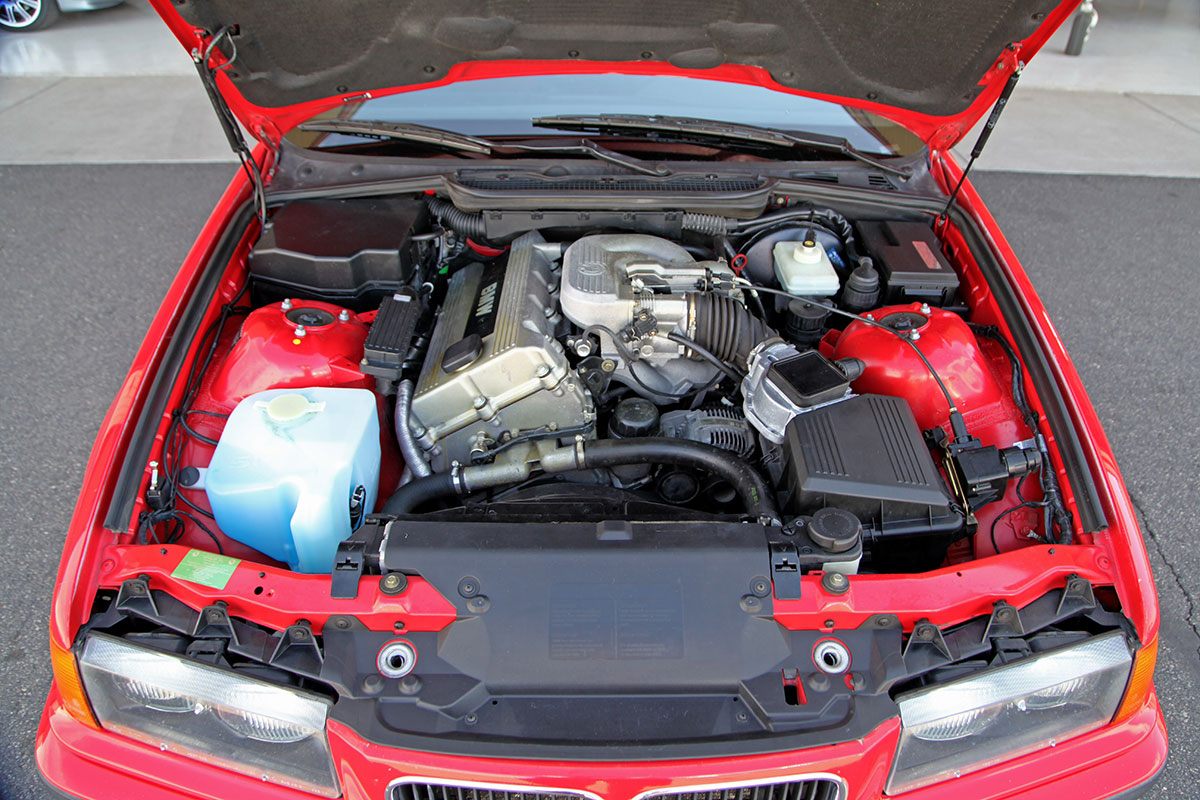Trick Attributes to Look for When Purchasing an Engine for Automotive Applications
When considering the purchase of an engine for automobile applications, numerous essential attributes require careful assessment to make sure ideal efficiency and functionality. From power and performance capabilities to fuel toughness, adherence, and performance to emissions standards, each facet plays a vital duty in identifying the engine's suitability for specific automobile needs.
Power and Performance
When picking an automobile engine, customers focus on power and performance to make certain ideal driving experience and effectiveness. The power result of an engine, often determined in horsepower (HP) or kilowatts (kW), dictates the velocity, full throttle, and general abilities of a car. Higher power scores generally lead to quicker acceleration and far better efficiency, specifically throughout surpassing or carrying hefty loads. Efficiency, on the various other hand, encompasses a broader spectrum of characteristics, including fuel efficiency, exhausts, dependability, and overall driving dynamics. A well-performing engine not just delivers power efficiently yet also runs efficiently across different rate ranges and driving conditions.
Additionally, elements such as engine displacement, turbocharging, and hybrid modern technologies play substantial functions in improving both power and performance levels. Ultimately, selecting an engine that uses a potent combination of power and performance makes sure a enjoyable and reliable driving experience.
Gas Efficiency
Enhancing gas performance is an extremely important factor to consider for consumers when examining auto engine options. Modern engines with attributes like straight fuel shot, turbocharging, and variable shutoff timing can substantially improve fuel efficiency by improving burning processes and decreasing power loss.

Toughness and Reliability
Attaining durable efficiency and reputable operation is essential for consumers reviewing the sturdiness and dependability of automotive engines. When considering an engine for auto applications, resilience refers to the engine's capability to hold up against wear, anxiety, and rough operating problems over an extended period. Dependability, on the other hand, indicates that the engine can continually execute its desired feature without unanticipated breakdowns or failings.
Consumers should try to find engines constructed with high-quality materials and accurate engineering to make certain durability. Elements such as bearings, crankshafts, and pistons must be resilient to handle the engine's power outcome without early wear. Additionally, engines equipped with advanced cooling systems, reliable lubrication, and durable filtering systems tend to show greater levels of dependability.
Regular upkeep and adherence to supplier suggestions are additionally essential consider maintaining an engine's longevity and integrity. By following maintenance schedules, making use of recommended liquids, and resolving any kind of problems promptly, consumers can make best use of the lifespan and efficiency of their automotive engines. Eventually, focusing on longevity and dependability in engine choice can Get the facts bring about a much more gratifying ownership experience with less unforeseen disturbances.
Exhausts Conformity
Making sure conformity with emissions regulations is an important aspect of reviewing vehicle engines for ecologically aware consumers. With enhancing concerns concerning air quality and environmental effect, strict exhausts requirements have actually been implemented internationally to reduce dangerous toxins released into the environment. When acquiring an engine for automotive applications, it is vital to consider its emissions conformity to decrease the carbon impact and stick to lawful demands.
Modern engines are geared up with sophisticated discharge control modern technologies such as catalytic converters, exhaust gas recirculation (EGR) systems, and selective catalytic reduction (SCR) to minimize dangerous exhaust gases like nitrogen oxides (NOx), carbon monoxide gas (CARBON MONOXIDE), and hydrocarbons (HC) These systems play a crucial role in guaranteeing that the engine fulfills the defined exhausts requirements and operates within permitted limits.

Cost-effectiveness
When taking into consideration auto engine acquisitions, evaluating cost-effectiveness is paramount for customers seeking both performance and worth. Cost-effectiveness in engine acquisition involves greater than simply the preliminary purchase cost. It includes the general costs associated to upkeep, fuel usage, and potential repairs over the engine's life-span. Choosing an engine that provides an equilibrium between long-lasting savings and ahead of time prices can cause considerable advantages for the consumer.
One key aspect of cost-effectiveness is gas performance. Engines that are designed to make best use of gas economy can cause substantial financial savings in time, specifically for people who drive often or over long ranges. Additionally, thinking about the accessibility and price of extra parts and maintenance can contribute to the total cost-effectiveness of an engine. Making certain that maintenance and repair services are practical and available can prevent unforeseen economic problems down the line.

Verdict
Finally, when buying an engine for automobile applications, it is vital to think about essential features such as power and performance, gas resilience, effectiveness and integrity, discharges conformity, and cost-effectiveness. These aspects are necessary in making certain that the engine meets the Source requirements of the car and operates properly in various driving problems - bmw 318ti. Making an informed decision based on these criteria will inevitably cause a reliable and effective vehicle engine purchase
From power and performance capacities to sustain adherence, resilience, and efficiency to exhausts requirements, each aspect plays an important role in establishing the engine's viability for certain vehicle requirements. Engines made to run on different fuels such as electrical power, crossbreed systems, or biofuels can provide improved fuel economic climate and reduced discharges contrasted to standard gas or diesel engines. Consumers must thoroughly take into consideration the fuel performance scores and modern technologies integrated right into automobile engines to make enlightened getting decisions that straighten with their priorities for cost financial savings and sustainability.
When considering an engine for vehicle applications, resilience refers to the engine's capacity to withstand wear, anxiety, and harsh operating conditions over an extensive period.In verdict, when buying an engine for automotive applications, it is critical to take into consideration essential functions such as power and efficiency, fuel reliability, effectiveness and toughness, emissions compliance, and cost-effectiveness.